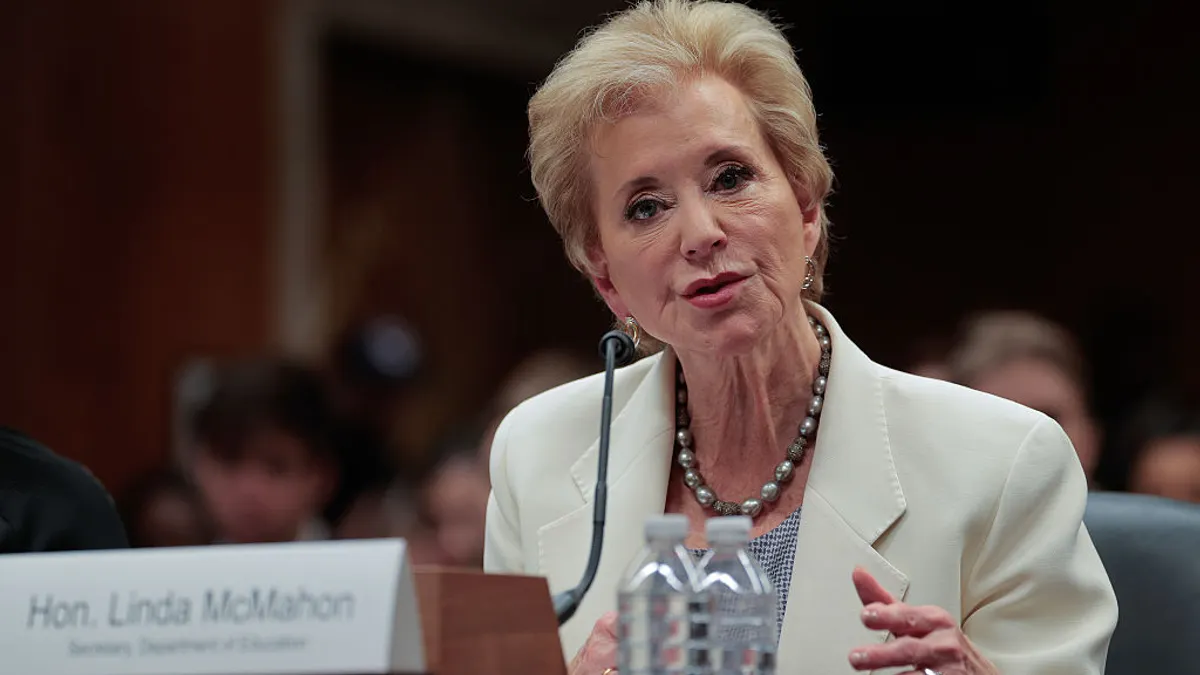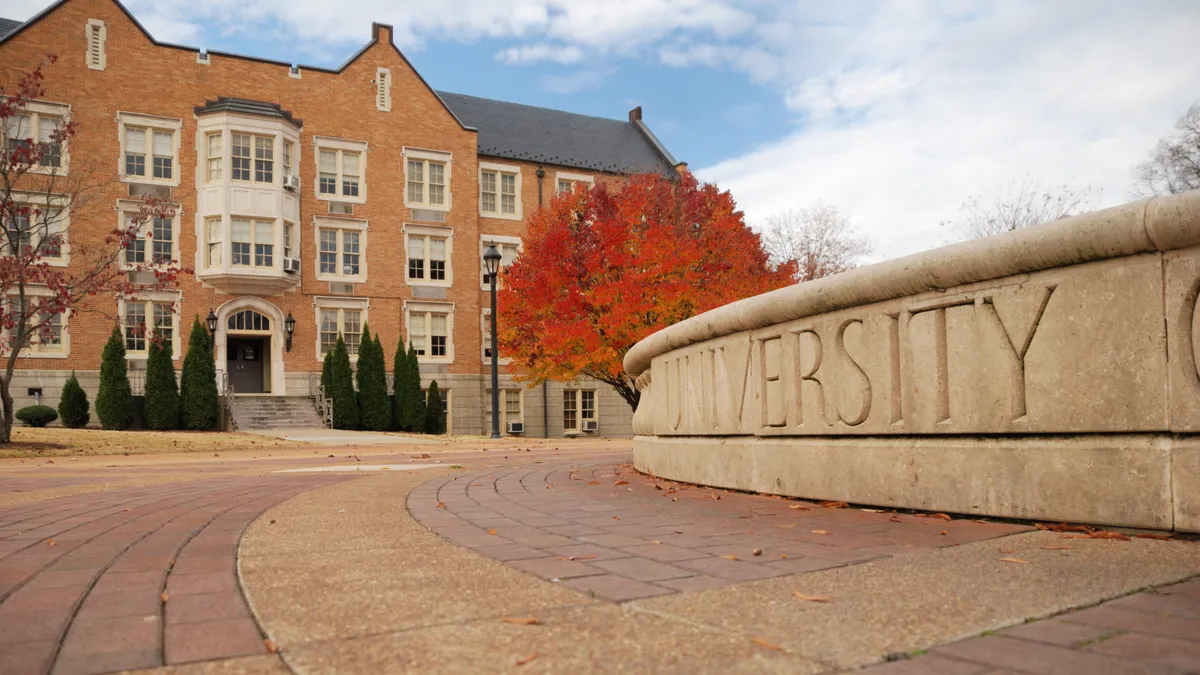Data is everywhere these days. Whether someone is using facial recognition software to access their electronic devices or buying an item recommended to them by an algorithm, information on their behavior is being collected and used by companies to improve the user experience and increase their own bottom lines.
Those opportunities have created a need for workers skilled in parsing sets of data and figuring out how to put it to use. Job postings on Indeed.com for data scientists rose by 75% from 2015 to 2018 — and that trend is expected to continue.
Although data scientist jobs often boast high entry-level salaries — hovering around $95,000 — the U.S. is facing a growing skills gap in the field. Nationwide, there's a shortage of more than 150,000 workers with data science skills, according to a recent report from LinkedIn. That dearth of workers is particularly severe in large cities such as New York City, San Francisco and Los Angeles.
In response, colleges and universities are doubling down on efforts to add data science programs and to open up institutes to support research and development in the burgeoning field. While some are building massive centers to house researchers and students exploring these topics, others are teaming up with industry to better align curriculum with workforce needs.
To examine the trend, we looked at a handful of universities making big investments in programs to address data skills needs.
University of California, Berkeley
When the University of California, Berkeley started offering an introductory data science class in 2015, it soon became the one of the most popular courses in the college's history, with more than 1,000 students enrolling in it each semester. That prompted UC Berkeley to announce plans for an entire division of data science, which officials have touted as the most "profound change" to the university in years.
Rather than just benefit those in STEM fields, the center aims to get all students — regardless of their majors — well-versed in data. "Some degree of data analytics is simply part of what it means to be educated today," David Culler, a professor of computer science at UC Berkeley, told The Wall Street Journal.
The news came only months after UC San Diego launched an interdisciplinary data science institute, which will host faculty from several departments. Rajesh Gupta, co-director of the institute, said in the announcement that it was "inevitable" the university would make such a "massive investment" in data science.
Along with an emphasis on research, the institute is creating a five-year degree pathway for students to earn both a bachelor's of science and a master's of science, the latter with specialization in a data science specialty such as business analytics, health informatics and biostatistics.
Boston University
When Boston University added its data science center, it decided to go big. The center will be housed in a 17-story building — taller than any other on campus — visible from across the Charles River, where Harvard University and the Massachusetts Institute of Technology (MIT) are located. "We wanted architecture that would signal to everyone that this was a special place, the center of campus," Boston University President Robert Brown said in the announcement this past fall. (Though not everyone is happy with the design.)
Its architecture is also intended to encourage collaboration across disciplines, university officials said. The bottom floors will be devoted to math and statistics, the middle floors to computer science and the top floors to interdisciplinary work. The center is a response to "explosive demand" in fields related to data science, noted Jean Morrison, the university's provost and chief academic officer.
University of Virginia
The University of Virginia (UVA) announced earlier this year that it is launching an interdisciplinary school of data science, thanks to a $120 million gift, the largest private donation in the college's history. The school will offer graduate and undergraduate degrees as well as certificates to meet growing student interest in the field.
Rather than organize the new school by departments, however, UVA plans to set up satellites within its other schools to encourage more collaboration across disciplines. It also will have standalone centers focused on specific topics, such as machine learning, analytics and visualization.
Ethics in the emerging field will be an area of focus. "In a world full of data, how do we maximize the benefits and minimize the costs?" UVA President Jim Ryan wrote in an op-ed for the Richmond Times-Dispatch in January. "I believe universities have a responsibility to lead the way."
University of Houston
In 2017, the University of Houston announced it was forming an interdisciplinary institute of data science, with focuses including cyber and physical security, sustainability communities and personalized health care. This past November, the new institute nabbed a $10 million gift from Hewlett Packard, which is opening a campus in the Houston area.
The donation will go toward a scholarship endowment as well as equipment and research funding, the university announced. In addition, Hewlett Packard employees may serve as lecturers at the data institute, while the university's researchers may work with the company.
University of Chicago
Last year, the University of Chicago opened an interdisciplinary hub for data science and computing, the Center for Data and Applied Computing. The center awards money to projects and organizes gatherings among researchers, faculty and students to encourage them to collaborate on innovative ideas.
The new center builds on the work of the university's Computation Institute, which helped to expand the field of computing, with a focus on bringing those principles to a wider array of fields. It is housed in the same building as the computer science department, with which it works closely.
Massachusetts Institute of Technology
Last year, MIT made headlines when it rolled out plans for a $1 billion computing college, an effort it called the "most significant structural change" to the university in more than 50 years. The college intends to bring together work in computer science, data science and artificial intelligence with the humanities and social sciences.
MIT plans to add 50 faculty positions for the computing hub. While half will be appointed within the college, the other half will split their appointments with other departments so they can share insights across diverse fields.
The venture is partly an effort to address how automation is reshaping what skills are needed to thrive in the workplace. "Computing is no longer the domain of the experts alone," MIT President L. Rafael Reif said in the university's announcement. "It's everywhere, and it needs to be understood and mastered by almost everyone."







